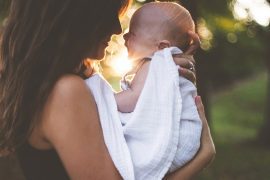By Dr. Laura Markham
“Before the plane takes off, the pilots have a flight plan… but during the course of the flight, wind, rain, turbulence, air traffic, human error, and other factors act on the plane… 90% of the time, the plane is not even on the prescribed flight path… During the flight, the pilots make constant adjustments to get back on track. The flight of that airplane is the perfect metaphor for family life… It doesn’t make any difference if we are off target or even if our family is a mess. The hope lies in the vision and in the plan and in the courage to keep coming back on course, time and time again.”
-Stephen Covey
You may have noticed that you aren’t perfect. That sometimes you aren’t the parent or the person you want to be. Sometimes you blow it. We all do. Welcome to humanity.
The bad news is that even if we’re committed to being the best parent, and best person, we can be, we will never be perfect. Life happens. We get off track. We get disconnected — from our child, our partner, our own deepest guidance. We see the other person as making our life more difficult, rather than realising that they’re having a hard time. We feel hurt, we feel frustrated, we feel trapped. We lash out.
There’s no way to stay constantly on a path of harmony, without occasional wrong turns. In fact, all relationships are a constant series of connections and disconnections, missteps and course corrections.
The good news, though, is that the more quickly we notice those actions that are taking us in the wrong direction, the easier it is to course correct.
You may have noticed that you aren’t perfect. That sometimes you aren’t the parent or the person you want to be. Sometimes you blow it. We all do. Welcome to humanity.
The even better news is that our sincere course corrections actually strengthen our relationships.
- Every time you re-connect with your child after a disconnection, you teach trust.
- Every time you choose love over anger, you role-model anger management.
- Every time you let go of hurt and reach for understanding, you model compassion.
- Every time you reach across a divide between you and a loved one, you testify to the boundlessness of your love, your commitment that “There ain’t no river wide enough” to keep your love from getting through.
So when you find yourself off track, don’t be afraid to pause, re-group, apologise to your child, and find a way to repair. You’re teaching one of the most essential lessons: that we all make mistakes, that we can all recover, that relationships are resilient and each of us has the power to repair them.
Worried that if you apologise every time you raise your voice, your child will begin to mistrust your apologies? You’re right that it erodes trust to apologise and then not change your behaviour. But the solution is to change your behaviour, not to stop apologising!
So when you find yourself off track, don’t be afraid to pause, re-group, apologise to your child, and find a way to repair.
If you sometimes feel despairing about being able to change your behaviour, you aren’t alone. This is the most difficult work any of us can do. But that doesn’t excuse us from doing it, even if sometimes it feels like pushing a boulder uphill. We can do hard things if we give ourselves support. And if we don’t do this hard work, we leave that boulder for our children to push.
The solution is to give yourself the support you need, so you can stay more centred and emotionally generous on a daily basis. That way, you can tune in BEFORE things get out of hand, so you can course correct before things go too far off track. Every time you do that, you’re re-wiring your brain, so you can manage yourself better. Which means you won’t have so many opportunities to apologise!











